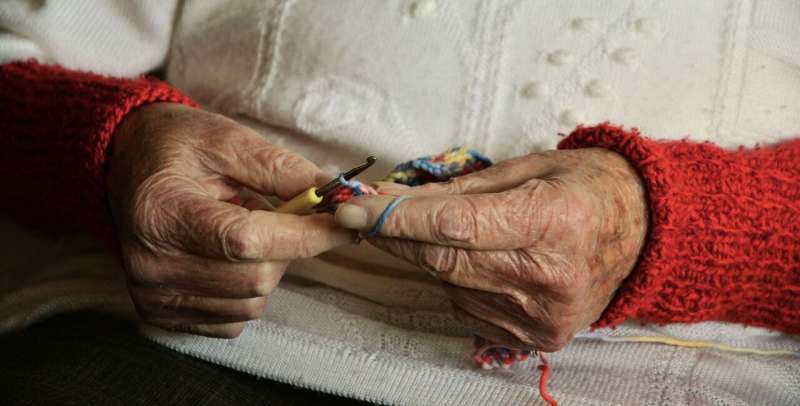
Credit: Pixabay/CC0 public domain
A new study led by researchers at the UCLA Health Jonsson Comprehensive Cancer Center has revealed that common breast cancer treatments, including chemotherapy, radiation and surgery, may accelerate the biological aging process in breast cancer survivors.
The findingspublished in the Journal of the National Cancer Instituteshow that markers of cellular aging – such as DNA damage response, cellular senescence and inflammatory pathways – increased significantly in all breast cancer survivors, regardless of the type of treatment they received. This suggests that the impact of breast cancer treatments on the body is greater than previously thought.
“For the first time, we show that the signals we once thought were caused by chemotherapy are also present in women undergoing radiation and surgery,” said lead author Judith Carroll, associate professor of psychiatry and biobehavioral sciences at UCLA, Endowed Chair of the George F. Solomon Professorship in Psychobiology and researcher at the UCLA Health Jonsson Comprehensive Cancer Center.
“Although we expected that increased gene expression would be linked to biological aging in women who received chemotherapy, we were surprised to find similar changes in those who received radiation or surgery alone.”
Advances in cancer therapies have significantly improved survival rates, with an estimated four million breast cancer survivors in the US today and more than six million expected by 2040. However, breast cancer is linked to accelerated aging, which impacts physical abilities, independence and longevity.
Biological aging processes, which cause conditions such as fatigue, cognitive decline, frailty and cardiovascular disease, appear to be an important factor. Evidence suggests that cancer treatments, such as chemotherapy, may increase the risk of earlier onset of these aging-related conditions, making it critical to understand the specific mechanisms involved to better target and manage them.
To investigate how gene expression related to aging changes over time in women diagnosed with breast cancer, the team conducted a two-year longitudinal study that followed women undergoing breast cancer treatment prior to treatment and again after the treatment to see how their biological aging markers evolved. .
The team monitored gene expression in their blood cells using RNA sequencing, focusing on markers that signal biological aging, including a process known as cellular senescence, in which cells stop dividing but do not die. These so-called ‘zombie cells’ accumulate over time and can release harmful substances that damage nearby healthy cells, contributing to aging and inflammation.
The data was then analyzed using statistical models to help identify aging-related changes.
The team found that regardless of the type of treatment, there was an increase in the expression of genes that monitor cellular processes involved in biological aging. In particular, genes that capture cellular aging and the inflammatory signal from these cells, indicating that their immune cells are aging faster than normal.
They also saw an increase in genes that respond to DNA damage, which are genes that are expressed when there is DNA damage. Although chemotherapy showed a slightly different pattern, similar to what others have shown, they also noticed changes in women who did not receive chemotherapy.
“The results suggest that women receiving treatment for breast cancer have a pattern of gene expression indicative of increased DNA damage and inflammation, which may be important targets for cancer recovery and improved quality of life during survival,” says senior author of the research. study Julienne Bower, UCLA College Professor of Psychology and Psychiatry and Biobehavioral Sciences and member of the UCLA Health Jonsson Comprehensive Cancer Center.
“We are just beginning to understand the long-term consequences of cancer therapy, and these findings are a critical step toward understanding the biological mechanisms that drive many post-treatment symptoms in breast cancer survivors,” Carroll added. “Our goal is to find ways to improve survival, not only in terms of years lived, but also in quality of life and overall health.”
The team is now investigating a new biomarker that measures a woman’s biological age and the rate at which she ages. This could help determine whether the aging signals detected during cancer treatment have a long-lasting effect on biological age. The team plans to investigate factors that may influence this, focusing on protective behaviors such as exercise, stress management and healthy sleep patterns.
Carroll and Bower are also affiliated with the Cousins Center for Psychoneuroimmunology and the Semel Institute for Neuroscience and Human Behavior at UCLA. Other UCLA authors include Catherine Crespi, Steve Cole, Patricia Ganz and Laura Petersen.
More information:
JNCI Journal of the National Cancer Institute (2024). DOI: 10.1093/jnci/djae201/jnci-23-1574
Quote: Study shows common breast cancer treatments may speed up the aging process (2024, October 7), retrieved October 7, 2024 from https://medicalxpress.com/news/2024-10-common-breast-cancer-treatments-aging.html
This document is copyrighted. Except for fair dealing purposes for the purpose of private study or research, no part may be reproduced without written permission. The content is provided for informational purposes only.
 Healthy Famz Healthy Family News essential tips for a healthy family. Explore practical advice to keep your family happy and healthy.
Healthy Famz Healthy Family News essential tips for a healthy family. Explore practical advice to keep your family happy and healthy.


